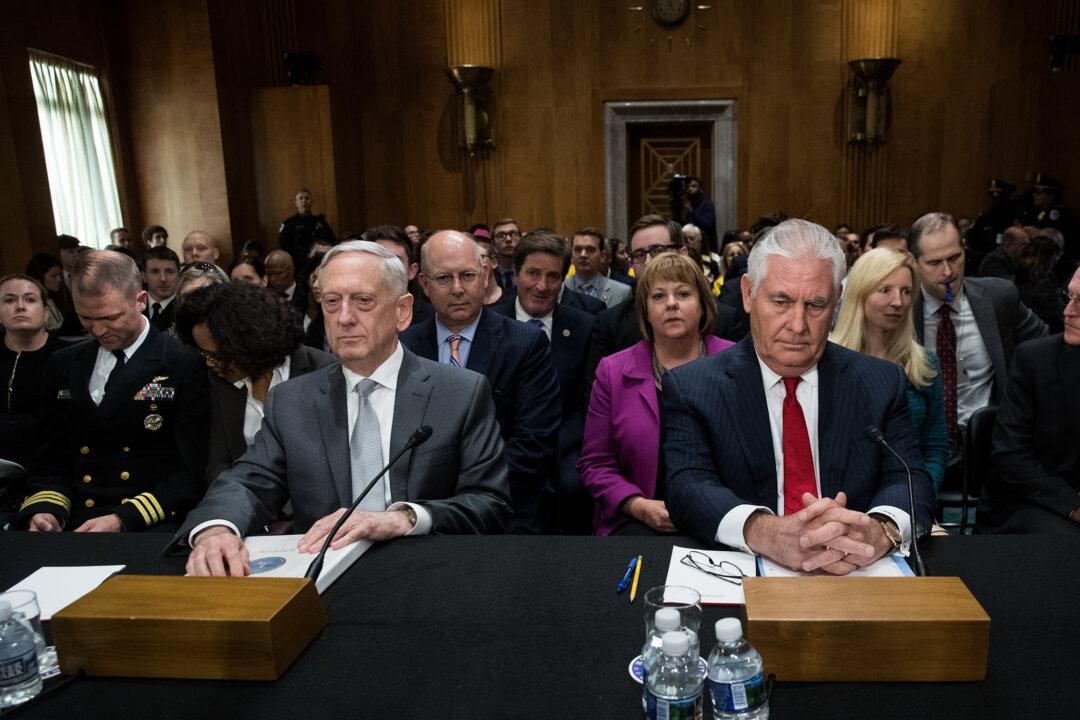Trump administration officials insist that the current U.S. military operations against ISIS and other terrorist groups are still covered by congressional authorizations that were passed in 2001-2002, dismissing the growing calls for the administration to seek a renewed authorization from Congress.
Defense Secretary Gen. Jim Mattis and Secretary of State Rex Tillerson told a Senate Foreign Relations Committee hearing on Oct. 30 that the 2001 and 2002 Authorizations for the Use of Military Force (AUMF), which Congress intended to be used against al-Qaeda and the perpetrators of the Sept. 11 attacks, are still valid today in justifying the ongoing wars against ISIS and other terrorist groups.




